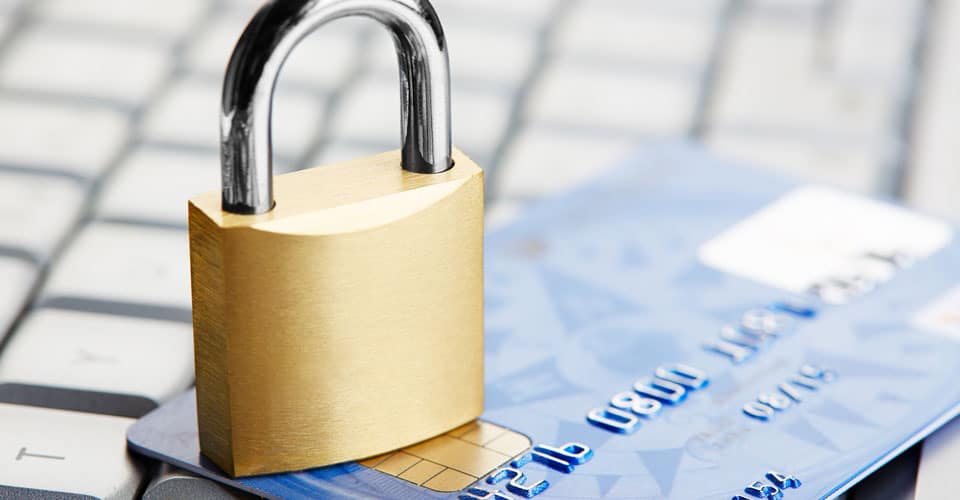There are millions of e-commerce websites on the internet today, all with varying levels of security. With all the plugins and easy-build software out there, the majority of these websites are under-protected when it comes to their online security, and cybercriminals are finding it easier than ever to break in. In 2017, e-commerce fraud rose by 45%, leading to losses of over $57.8 billion worldwide. It’s forecast that e-commerce fraud will cost consumers $20 billion a year by 2022.
E-commerce stores, by nature, have to collect personal information and payment information from their customers, and that means there are vulnerability points where cybercriminals can step in and steal information. We’ve seen dozens of the world’s biggest companies confess to security breaches, and if they can be accessed by a determined hacker, accessing your site – if you are currently doing nothing to stop them – would be like taking candy from a baby.
While we all want to focus on the marketing aspect of our stores, promoting our products, finding happy and satisfied customers, and of course, making money, we need to understand that we are building a house of cards if we fail to set up the right systems as we grow.
What is E-Commerce Security?

So before we look at why you need to set up great security, what is e-commerce security, and what does it involve?
E-commerce security is literally the protocols you have in place to protect your business and your customers. Without them, you aren’t giving your customers a reason to trust you with their payment information, because they may believe (rightly) that their information may be stolen. Your e-commerce security should include:
- Privacy protection: you need to ensure your customers’ data is never shared (even unwillingly) with unauthorized persons. This means you’ll need to consider or talk to your website manager about encryption, data protection, anti-virus software, and a firewall.
- Data integrity: this means you need to ensure your customers’ information cannot be altered in any way.
- Authenticity: Both you and your customers need to be able to prove you are who you say you are. This can start with 2-factor authentication, but is worth talking to an expert to find the best options that won’t disrupt your customer journey.
- Non-repudiation: this essentially means that you must provide evidence of every step of a transaction to confirm that it took place properly. This should also go for any other communication you have with a customer.
Now we know what e-commerce security involves, here are some of the reasons you need to be setting up the correct security for your e-commerce site.
Avoid Cyberattacks
This, of course, is the big one. Small stores (compared to the likes of Amazon) are those under the most threat from cybercriminals because they typically have low levels of online security. In fact, it has been found that 1 in 5 online small businesses are victims of a cyberattack every year, and 60% of these businesses affected are forced to terminate business in just months due to the loss of their customers. Worse still, they may get in and out without you ever knowing.
There are two main types of cyber threats that should be considered when setting up security measures: Phishing Attacks and Credit Card Fraud.
Phishing Attacks
A phishing attack occurs when a hacker gets hold of login details of a customer by sending out an email or other message that appears to be from a trusted body, that when opened, will take the consumer’s private information. This is less common now with more savvy young people being on the lookout for these scams, but it’s still incredibly common for older people or well-targeted attacks.
You need to be on the lookout for scammers who duplicate your emails or store front in an effort to scam your legitimate customers. If a customer sees there are scammers creating convincing emails, messages and sites, it will break their trust with you, too.
Credit Card Fraud
Credit card fraud is the other major threat. Cybercriminals target e-commerce stores more than any other business on the internet, of which a whopping 32.4% are successful. Credit card fraud in this context is when a criminal steals someone’s details and uses them to purchase products from your store. This means the rate of credit card chargebacks is becoming a major issue for e-commerce businesses, and is currently rising by 20% year on year.
The first sign of this is a different billing and delivery address, so you’ll need an Address Verification System (AVS). This will match the billing address to the address registered on with the card, and will prevent purchase if the two do not match.
You need to put as many hurdles and road blocks in the way of potential criminals who may attack your store.
Develop Trust
Trust is the backbone of business-to-customer relationships, and effective e-commerce website security is essential for developing and maintaining this trust. Once this trust is lost due to a breach of security, it is very unlikely that those customers who had their data compromised will come back to buy from your e-commerce store, and your venture will fail.
It is so important to protect the privacy of your customers so that they cannot be a victim to third parties accessing their personal information without their knowledge. It’s easy to forget that there is a human being on the other end of the transaction, so do everything you can to protect them. As you grow, you’ll need to work with security-wise professionals to keep your site air-tight.
Maintain a Good Reputation

Think about the companies that have lost data – while you may shrug at someone accessing your email address, accessing payment information is another matter entirely. Do you trust those companies anymore?
Alongside trust comes a good reputation, but this can be dashed in a day if you allow your customers’ data to be compromised. If a customer feels that their information has been compromised at any point in the past, they are unlikely to shop with you again and won’t hesitate to tell others about their bad experience, preventing you from obtaining new customers or retaining existing ones. High levels of security mean that breaches of data are much less likely to occur and so the reputation of your e-commerce website will be maintained so that it can continue to grow. You can also boast about it to your customers, which may help customers choose you over their competitors.
At Fireside, we know just how important e-commerce website security is to both you and your customers. When you choose to build and manage your e-commerce site with us, we won’t just make the process fast and simple, we will also ensure that your website is fully safe and secure.
If you’re ready to learn more about how to protect your site from hackers, click here to read How To Kee/website-design-development/how-to-keep-your-e-commerce-website-secure/p Your E-Commerce Website Secure. Or, to learn more about building your e-commerce website with Fireside, click here.




